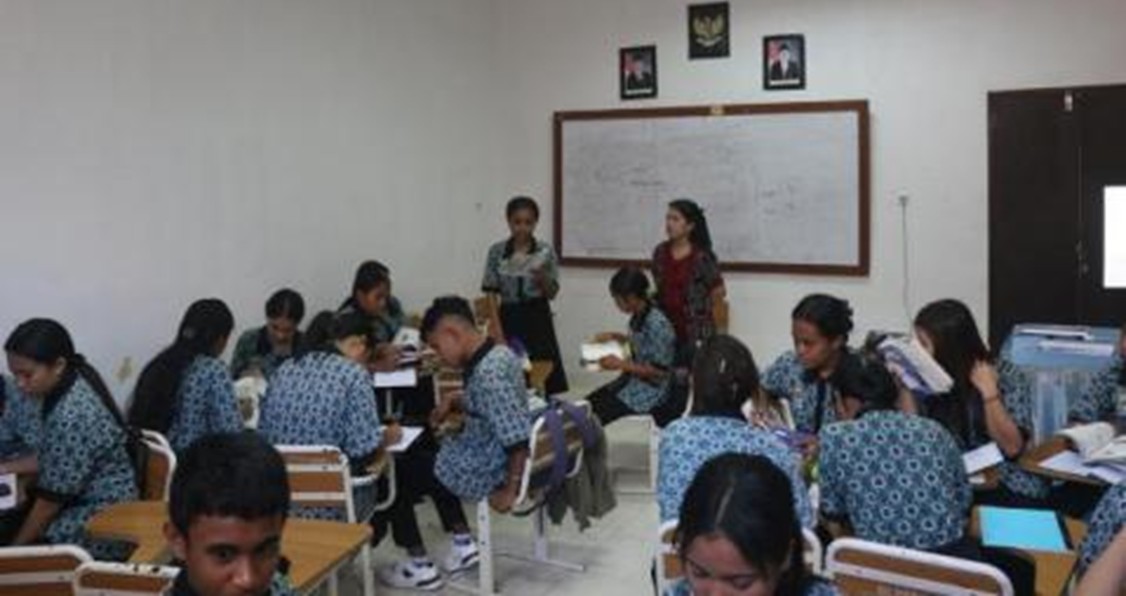Pelatihan implementasi buku sains dengan pendekatan case-based learning untuk peningkatan berpikir kritis mahasiswa PGSD
DOI:
https://doi.org/10.53088/penamas.v5i4.2265Keywords:
Training, Science Book, Case-Based Learning, Critical Thinking, StudentAbstract
Training on implementing science books using a Case-Based Learning (CBL) approach was conducted to enhance students' critical thinking skills. This training was motivated by the need for innovative teaching materials that are not only theoretical but also able to present real-world contexts in science learning. The training was carried out in several stages: an introduction to the concept of CBL, guidance on using case-based science books, and direct practice during the learning process. The participants were students of the Elementary School Teacher Education study program in the Basic Concepts of Science course. The instruments used included a response questionnaire, observations of the training implementation, and a test. The results showed that implementing science books with a CBL approach had a positive impact, as evidenced by improvements in students' ability to identify problems, analyse information, and draw logical conclusions from real cases. In addition, students' responses to the training were also very positive, with evaluations indicating that CBL-based science books are practical and engaging. The posttest results showed an improvement in students' critical thinking, with an average score of 82. Thus, training in implementing CBL-based science books proved effective in equipping students for science learning.
References
Chen, C. C., Shang, R. A., & Harris, A. (2006). The efficacy of case method teaching in an online asynchronous learning environment. International Journal of Distance Education Technologies, 4(2), 72–86. https://doi.org/10.4018/jdet.2006040106
Hammond, J. S. (2002). Learning by the case method. New York: Harvard Business Publishing.
Hysa, X., Carrubbo, L., Sadiku, A., Gjana, I., & Hazizaj, N. (2020). The perceived influence of case method on students’ performance and critical thinking in business studies. International Journal of Learning, Teaching and Educational Research, 19(3), 188–213. https://doi.org/10.26803/ijlter.19.3.11
Jatmiko, B., Prahani, B. K., Supardi, Z. I., Wicaksono, I., Erlina, N., Pandiangan, P., & Althaf, R. (2018). The comparison of OR-IPA teaching model and problem based learning model effectiveness to improve critical thinking skills of pre-service physics teachers. Journal of Baltic Science Education, 17(2), 300-319.
Jones, K. A. (2003). Making the case for the case method in graduate social work education. Journal of Teaching in Social Work, 23(1–2), 183–200. https://doi.org/10.1300/J067v23n01_12
Kusumantoro, Jaenudin, A., & Melati, I. S. (2022). Case-based interactive e-module: an alternative supplement to increase student learning motivation. Journal of Education Technology, 6(4), 674–684. https://doi.org/10.23887/jet.v6i4.47254
Mahdi, O. R., Nassar, I. A., & Almuslamani, H. A. I. (2020). The role of using case studies method in improving students’ critical thinking skills in higher education. International Journal of Higher Education, 9(2), 297–308. https://doi.org/10.5430/ijhe.v9n2p297
Nuzulaeni, I., & Susanto, R. (2022). Dampak kompetensi pedagogik terhadap kemampuan berpikir kritis pada siswa kelas V SD. Jurnal Pedagogi Dan Pembelajaran, 5(1), 20–26. https://doi.org/10.23887/jp2.v5i1.42481
Puri, S. (2022). Effective learning through the case method. Journal Innovations in Education and Teaching International, 59(2), 161–171. https://doi.org/10.1080/14703297.2020.1811133
Ramdani, A., Jufri, A. W., Gunawan, G., Fahrurrozi, M., & Yustiqvar, M. (2021). Analysis of students' critical thinking skills in terms of gender using science teaching materials based on the 5E learning cycle integrated with local wisdom. Jurnal Pendidikan IPA Indonesia, 10(2), 187-199. https://doi.org/10.15294/jpii.v10i2.29956
Reed, M. M., & Brunson, R. R. (2018). Exploration of the efficacy of the case method of teaching. The CASE Journal, 14(3), 362–371. https://doi.org/10.1108/tcj-01-2018-0009
Seyhan, H. G., & Okur, M. (2021). Examining the Changes in Pre-Service Science Teachers' Views on Science, Technology and Society: The Impact of Socio-Scientific Issues. International Journal of Curriculum and Instruction, 13(3), 2923-2956.
Sobri, M., Muid, A., & Daud, S. M. (2021). Penggunaan model pembelajaran case method dalam mengatasi demotivasi belajar during mata kuliah muhadatsah lil mubtadiin Prodi Pendidikan Bahasa Arab Universitas Jambi. Jurnal AD-DHUHA, 2(2), 1–11.
Sofia, N., Ritonga, M., Arita, S., Dewi, I., Sofya, R., & Shalihah, M. (2023). Peningkatan keterampilan berpikir kritis melalui pengembangan e-modul perpajakan berbasis case method. Jurnal Ecogen 6(1), 54–63.
William, B. (2005). Case based learning—a review of the literature: is there scope for this educational paradigm in prehospital education? Emergency Medicine Journal, 22(8), 577–582. https://doi.org/10.1136/emj.2004.022707
Yusrina, Y., Tang, M. R., & Saud, S. (2021). Needs Analysis of teaching materials for learning discourse analysis. Proceeding of International Conference on Language Pedagogy (ICOLP), 1(1), 263–268. https://doi.org/10.24036/icolp.v1i1.49

Downloads
Published
How to Cite
Issue
Section
License
Copyright (c) 2025 Fembriani Fembriani, Andriyani Dua Lehan, A Nawa Netty Elisabeth

This work is licensed under a Creative Commons Attribution-ShareAlike 4.0 International License.
Authors who publish with this journal agree to the following terms:
The author(s) retain copyright and grant the journal the right of first publication with the work simultaneously licensed under a CC BY-SA 4.0 license that allows others to remix, adapt, and build upon the work even for commercial purposes, as long as they credit the author(s) and license their new creations under the identical terms.
License details: https://creativecommons.org/licenses/by-sa/4.0/
Most read articles by the same author(s)
- Fembriani Fembriani, Paulina Riwu Ga, Martha K Kota, Peningkatkan kemampuan guru dalam penyusunan proposal penelitian tindakan kelas bagi Guru SD Perumnas 1 Kota Kupang , Penamas: Journal of Community Service: Vol. 2 No. 1 (2022): Penamas: Journal of Community Service


